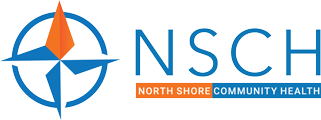Since 1977, NSCH has been the primary source of healthcare for a diverse population of low-income, medically underserved, uninsured, and under-insured service area residents. More than 90% of patients live at or below 200% of the federal poverty level. In 2017, over 42% of patients identified as belonging to a racial and/or ethnic minority, 33.4% of those being Hispanic/Latino. More than 40% of patients reported that they are best served in a language other than English, with Spanish and Portuguese being the most prevalent languages (UDS, 2017). NSCH patients, and service area residents in general, live with a range of challenges and barriers to appropriate and affordable health care, including intergenerational family poverty, unemployment and under-employment, limited English skills, unreliable transportation, episodic homelessness, and a raging opioid abuse epidemic. Key health issues include diabetes, cardiovascular disease, hypertension, asthma, various cancers, obesity, substance use disorder, tobacco use, tooth decay and gum disease, and limited knowledge of preventive health practices. In particular, opioid use disorder is a large and growing problem, along with associated Hepatitis C and HIV infection, often due to injection drug use.
There are three full-time practice sites in each of the communities that provide medical, dental, behavioral health, and substance abuse services. They are the Salem, Gloucester, and Peabody Family Health Centers. The remaining sites are school-based and are the Teen Health Center at Salem High School, the Student Health Center at Peabody Veterans Memorial High School, and five behavioral health-only sites at elementary and middle schools in Salem. Additionally, the health center will soon provide on-site behavioral health services to clients at a Salem-based homeless shelter and drop in center.
North Shore Community Health’s mission is to build healthy communities by providing exceptional care to all. While NSCH provides care to patients regardless of geography, 83% of our patients live in the following cities and towns within Essex County, MA: Salem, Peabody, Gloucester, Beverly, Danvers, Rockport, Ipswich, Marblehead, Swampscott, Essex and Middleton. All of these comprise the health center’s current service area. NSCH provides care and support to all patients of all ages. Thirteen percent of the health center’s patients are 0-17, another 13% are 65-85+ years old, with the vast majority of our patients (74%) aged 18-64 with 44% male and 66% female patients (UDS, 2017).
Comprehensive, integrated primary care services are provided by licensed and board-certified physicians, nurse practitioners, and physician assistants. Patients receive oral health care at sites by licensed dentists and hygienists. Through a screening and referral process, NSCH’s primary care providers refer patients to the in-house behavioral health (BH) department and BH care is provided by a board certified part-time psychiatrist, licensed social workers, or a licensed mental health counselor. NSCH providers can do a "warm hand off" to fully integrated behavioral health clinicians in each site.
Over the past five years and in response to the needs of both our patients and the communities we serve, NSCH has increased its behavioral health and substance abuse treatment services. The state of Massachusetts, and Essex County where all NSCH services sites are located, are in the midst of an epidemic of opioid-related use and deaths. In Salem, Peabody and Gloucester, the number of deaths attributed to opioid use have increased at epidemic rates. Unfortunately, the number of deaths attributable to opioids has increased since 2013 by 167%, in Peabody by 92% and in Salem by 200%.
NSCH proudly provides excellent, comprehensive care to its patients and is very involved and engaged in the communities we serve.





